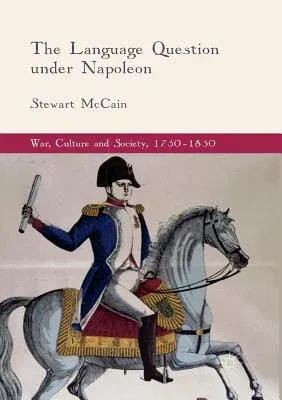Stewart McCain
(Author)The Language Question Under Napoleon (Softcover Reprint of the Original 1st 2018)Paperback - Softcover Reprint of the Original 1st 2018, 23 May 2018

Qty
1
Turbo
Ships in 2 - 3 days
In Stock
Free Delivery
Cash on Delivery
15 Days
Free Returns
Secure Checkout

Part of Series
War, Culture and Society, 1750-1850
Part of Series
War, Culture and Society, 1750 -1850
Print Length
307 pages
Language
English
Publisher
Palgrave MacMillan
Date Published
23 May 2018
ISBN-10
3319855255
ISBN-13
9783319855257
Description
Product Details
Author:
Book Edition:
Softcover Reprint of the Original 1st 2018
Book Format:
Paperback
Country of Origin:
NL
Date Published:
23 May 2018
Dimensions:
20.96 x
15.09 x
1.75 cm
Genre:
French
ISBN-10:
3319855255
ISBN-13:
9783319855257
Language:
English
Location:
Cham
Pages:
307
Publisher:
Weight:
399.16 gm